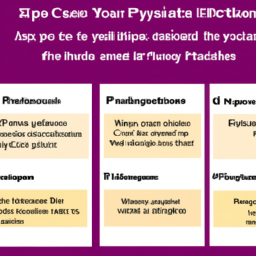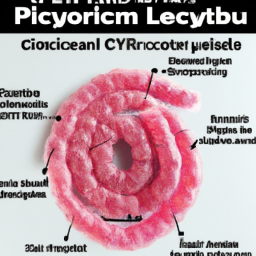
ETest Medical Corporation Blog
#IVD #MedicalDevices #HelicobacterPylori #DiagnosticDevices #InVitroDiagnostic #DiagnosticScience #DiagnosticTechnology #IVDInnovation
2023-02-22
No, not all H. pylori infections lead to stomach cancer. However, it is a risk factor for the development of gastric cancer, and it is important to be aware of the symptoms and seek medical advice if necessary.
2023-02-21
Learn about the four possible ways of getting h-pylori infection: contaminated food and water, person-to-person contact, poor hygiene, and animal contact. Understand the risks and how to prevent infection.
2023-02-21
If you have been diagnosed with a Helicobacter pylori infection, it is important to seek treatment. Learn more about the symptoms, diagnosis, and treatment options available to help manage the infection.
2023-02-20
Table of Contents Introduc […]
2023-02-20
This article explores the potential of probiotics and phytomedicine as alternative therapies for Helicobacter pylori infection. It examines the efficacy of these treatments and their potential to reduce the need for antibiotics.
2023-02-20
Approximately half of the human population is colonized by H. pylori, but only a small percentage of those individuals are at risk for developing peptic ulcer, gastric cancer, or mucosa-associated lymphoid tissue lymphoma.
2023-02-22
No, not all H. pylori infections lead to stomach cancer. However, it is a risk factor for the development of gastric cancer, and it is important to be aware of the symptoms and seek medical advice if necessary.
2023-02-21
Learn about the four possible ways of getting h-pylori infection: contaminated food and water, person-to-person contact, poor hygiene, and animal contact. Understand the risks and how to prevent infection.
2023-02-21
If you have been diagnosed with a Helicobacter pylori infection, it is important to seek treatment. Learn more about the symptoms, diagnosis, and treatment options available to help manage the infection.
2023-02-20
Table of Contents Introduc […]
2023-02-20
This article explores the potential of probiotics and phytomedicine as alternative therapies for Helicobacter pylori infection. It examines the efficacy of these treatments and their potential to reduce the need for antibiotics.
2023-02-20
Approximately half of the human population is colonized by H. pylori, but only a small percentage of those individuals are at risk for developing peptic ulcer, gastric cancer, or mucosa-associated lymphoid tissue lymphoma.






